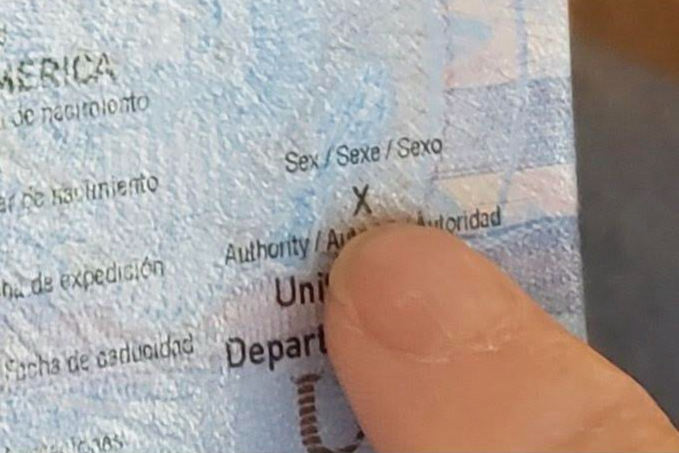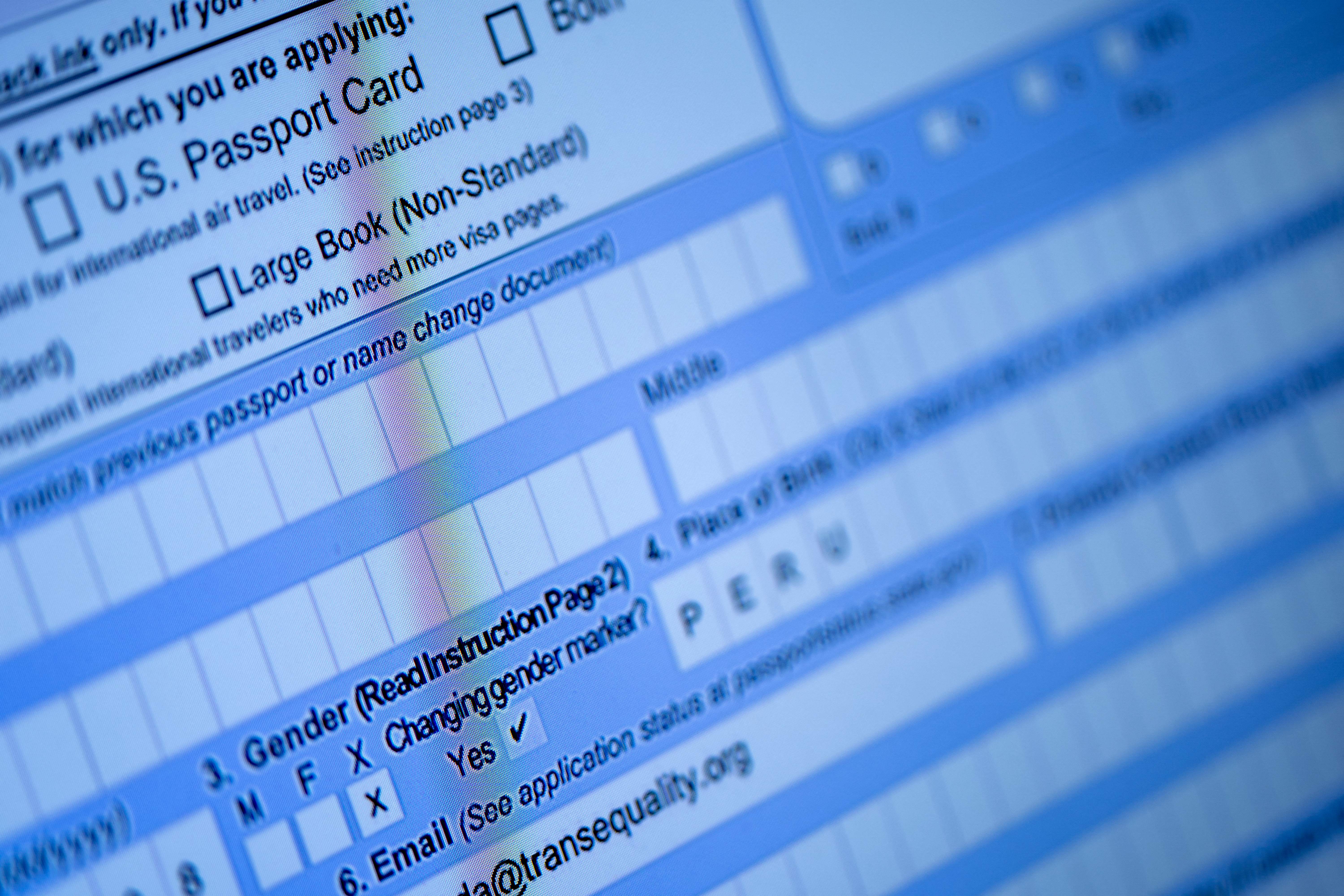In October 2021, Dana Zzyym became the first person in the U.S. to receive a passport with an “X” marked in the sex field, instead of male or female.
It wasn’t without a fight. Zzyym, a Navy veteran who is nonbinary and intersex, spent six years battling the State Department in court to get a set of accurate travel documents. Four years later, Donald Trump put people like them in legal limbo on his first day in office.
On January 20, Trump signed a directive ordering the federal government to only recognize two immutable sexes, male and female, and to ignore what it called “an ever-shifting concept of self-assessed gender identity.” (Trump claimed during his inaugural speech the government would only recognize “two genders,” further muddying the waters.)
Taken together, Trump’s stance rolled back government recognition, medical spending, and legal protections for transgender, nonbinary, and intersex people, in settings ranging from federal prisons to the passport office.
Under the order, the State Department is no longer issuing new “X” passports and has suspended processing for those seeking to change the gender marker on their travel documents. This brings to a close a brief, four-year period during the Biden administration where Americans were allowed to choose their marker without corroborating it with medical certificates.
Gender-diverse people already face heightened scrutiny and searches during travel, and the order is only going to make things worse, according to Carl Charles, a senior attorney at Lambda Legal, the advocacy group that represented Zzyym in their fight with the State Department.
What’s more, Charles argued, despite Trump claiming his stance is about avoiding ideology and “restoring biological truth to the federal government,” the new policy is actually a partisan position far out of step with the modern scientific understanding of sex and gender.
Intersex people, for instance, are born with a combination of anatomical, genetic, or hormonal characteristics that do not fall into the binary categories of male or female. Numerous expert groups like the American Medical Association medically recognize gender as a spectrum.
“The sex and gender executive order is ideology,” Charles told The Independent. “It's ideology is, ‘Let’s ignore science. Let’s ignore the experts. Let’s ignore people’s lived experiences.’”
It also creates a series of thorny civil rights questions for the new government.
“What is the State Department going to do, decide an intersex person’s sex, or make them choose one?” Charles continued. “That goes against a whole host of constitutional principles I can think of.”

While the Trump order is creating uncertainty for all those with “X” passports, a sudden change in course isn’t exactly a surprise for people like Zzyym. They had to fight their entire life to secure their place in a U.S. system that often creates major hurdles for gender-diverse people to live authentically and legally as themselves.
Zzyym was born in 1958. Their birth certificate initially listed their sex as unknown, but their parents decided to conduct a series of irreversible and harmful surgeries on them and raise them as a boy.
By 1994, Zzyym came to realize that maleness had been assigned to them inaccurately, so they changed their name to Dana, and it took about another decade for Zzyym to fully understand that they were intersex.
Zzyym became active in intersex activism and in 2014 sought to get a passport to attend a conference in Mexico City. This presented the activist with a conundrum: how do you accurately fill out federal documents when they only offer two choices of sex, neither of which match your lived experience, physical characteristics, or legal history?
What followed was a six-year odyssey in court where the State Department resisted multiple lower court decisions ordering the government to issue Zzyym an accurate passport. A federal appeals court ruled in 2020 that the agency was breaking federal law by arbitrarily forcing intersex people to pick male or female.
When their passport finally arrived in October 2021, Zzyym broke down in tears.
“For centuries, society has ignored and even hidden the existence of intersex people, which has led to so much isolation and pain — both from social erasure and from forced surgeries that physically erase who we are,” Zzyym wrote of the experience. “I went through this myself, and after years of pain, I felt obliged to do something for my community. I decided that forcing the government to recognize that we exist, on the basis of sex, was a necessary step to end this agony.”

The activist’s passport will last through 2031, but others aren’t so lucky.
West Virginia-based trans activist Ash Lazarus Orr told The 19th they applied to update the name and gender marker on their passport a few days before Trump was sworn in, as they observed growing anti-trans sentiment in their state and endured death threats and an attack inside a men’s bathroom.
Orr was told his documents, including his previous passport, his birth certificate, and his marriage license, had been “set aside” indefinitely, as the State Department works to formulate its new policies around the Trump order.
“They have my documentation that is very personal to me, and they cannot tell me if I’m going to be getting that back,” they told the outlet.
Like many other aspects of the president’s first 100 days agenda, civil rights groups including Lambda Legal have vowed to challenge the executive order on gender.
The Trump administration may be seeking to roll protections back, but the efforts of people like Zzyym mean there’s now a federal court record recognizing that intersex can’t be ignored within the law.
“It’s more than a piece of paper,” Zzyym wrote of getting their passport. “It’s an official acknowledgement of a community that for far too long has been kept in the dark.”







